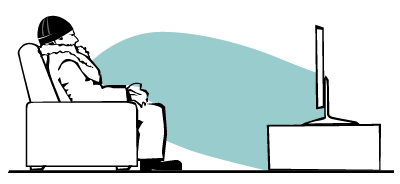There are many different sorts of heaters, so it’s nearly impossible to come up with a neat list that covers all of the sorts of problems you might expect. Sometimes they make noise. In some cases they smell like gas, or make a banging noise. Sometimes they just don’t work.
Most types of heaters run on either gas or electricity – both of which are fairly dangerous – so you’re fairly limited in how much you can do to fix things. In some circumstances however, there are certain actions you can take to either fix the problem or make things safer until someone comes to repair your heater.

Symptom:
- The heater is on fire!
- My central heating is not distributing heat evenly
- The heater won't start
- The heater makes a loud banging noise
- I can smell gas
The heater is on fire!
Call the fire brigade, grab your family and get everyone out of the house – really, do it now. In Australia, the number is 000…
Don’t try and fight the fire yourself unless you’re properly trained, even if you own a fire extinguisher. Different types of fire extinguishers are appropriate for different types of fires. Unless you have the right fire extinguisher and the right training, you’re likely to hurt or kill yourself, and spread the fire further. Both gas and electric fires are incredibly dangerous. Always keep heater vents clear and unobstructed, and never put anything on top of portable space heaters of any kind.
My central heating is not distributing heat evenly
If your central heating’s working beautifully in one part of your home and not at all in others, there may be something wrong. Of course, the way to fix this depends entirely on what sort of central heating you have, but as a rule you should double check all of the heating controls in the affected areas, and read the manual before assuming anything’s broken.
Hydronic heating - Radiators can become blocked, and will need to be flushed if this is the case. A blockage in the pipe is usually very easy to identify, because it will generally affect more than one radiator. Closing and opening the valves on each radiator may help to clear the blockage. If not, you will need to call a qualified technician.
Ducted heating - If you have a ducted system that doesn’t appear to be working, you could have a leak in the ducting network. This also requires a trained professional to fix it. Leaks in ducted heating systems can seriously affect their efficiency and will be expensive over time, but are normally quite easy to patch up.
If you’ve just installed a brand new ducted heating system and find that heat isn’t being distributed evenly, it may also be that you don’t have adequate insulation in the ceiling. A good installer will normally check this, though.
The heater is not starting
Radiant gas heater – If your gas heater won’t start, it could simply mean that the pilot light has gone out. Check this, and re-light it according to the manufacturer’s instructions.
Electric wall heater – If your electric wall heater won’t start, you should check the circuit breaker or safety switch at your main electrical junction box. If it has tripped, for whatever reason, you should be able to just switch it back on again. If this doesn’t help you will need to call an electrician.
If the circuit breaker trips again shortly thereafter, check to see if you’re using any other powerful appliances at the same time (like clothes dryers, ovens or similar). Poorly wired houses may have problems running several high powered appliances. If this is the case, you should get an electrician to check and possibly update the wiring in your home.
Bar heater or convection fan heater – Portable space heaters are reasonably cheap these days. If your portable heater isn’t turning on, try it in a power point you know is working. If it still doesn’t work, get rid of it and buy a new one. Unless it’s very special to you, it’s likely to be much more expensive to fix it than it is to replace it, and you should never try and fix this kind of appliance by yourself.
The heater is making a loud banging noise
Loud banging sounds in hydronic heaters are typically a sign of excess air build-up in the pipes, or a lack of water in the system. If you check the water level and find it is fine, you may have to bleed your radiator of any excess air. To do this, follow manufacturer’s instructions provided in the user manual. If none are supplied (or if it says to do so) you may need to contact a qualified professional.
I can smell gas
If you can smell gas coming from your heater then you should probably consider yourself incredibly lucky. Often people can’t smell gas leaks at all, which can lead to health problems and sometimes even death.
If you smell gas, immediately turn the heater off, then turn off the gas supply at the mains (usually controlled by a tap at the meter outside your house) and immediately call the company that supplies your gas. Trying to fix a gas leak on your own is a recipe for disaster and potentially lethal. If you have an older gas-powered heater, you should get it checked for gas leaks every two years, even if it seems to work properly.